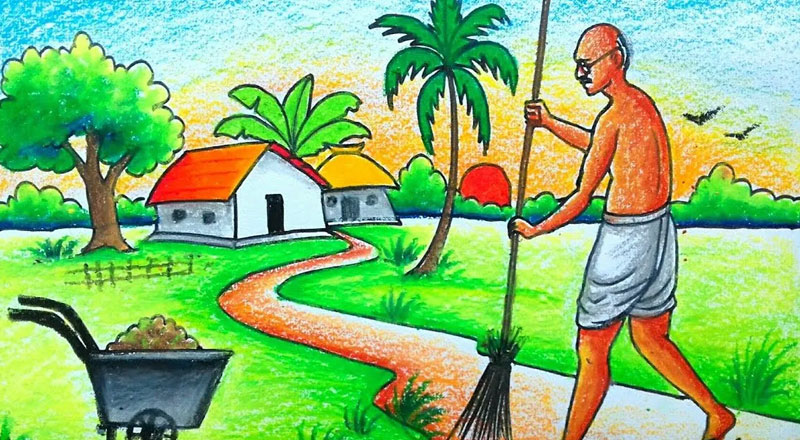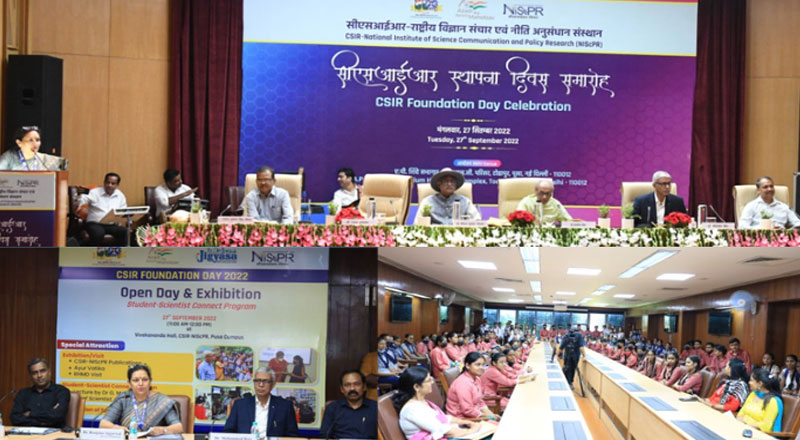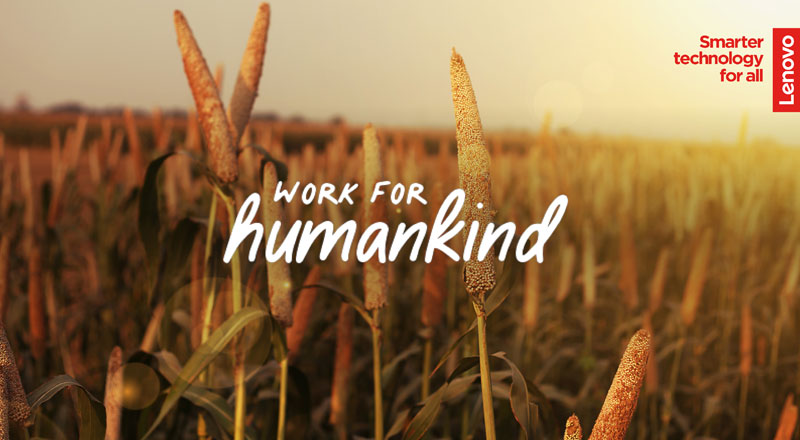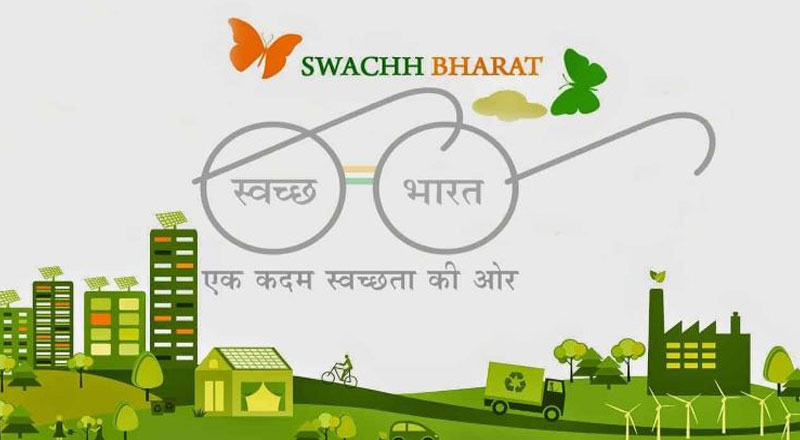The Distt. Administration of Gadhchiroli, Maharashtra has with the support of UNICEF, embarked upon a silent revolution in which they are gradually eradicating the cruel practice of exiling girls and women to a Kurma Ghar or “Period Hut” during the menstrual period.
The determination of the Administration since 2018, to bring about the mindset change for alleviation of the sufferings of adolescent girls and women from Gond and Madia tribes who face several social, cultural and religious constraints during menstruation is bringing about results.
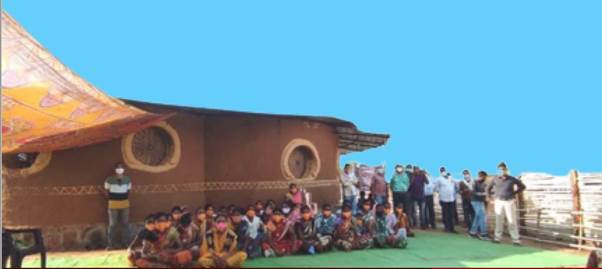
.
In the place of Kurma Ghars, Mahila Visava Kendras or Women’s Rest Centres which are safe and secure spaces are being set up, complete with basic amenities such as toilet, bathroom, handwashing facility with soap and running water as well as cooking amenities. During their stay there, the women are free to participate in SHG activities and other interesting hobbies as the centres are being equipped with a library, sewing machine, kitchen garden etc. Most of all, the facility provides a friendly environment to manage their menstruation with dignity.
To convince communities to get rid of the practice and invoke the desired change in behaviour required a movement that was accepted by the women, inspiring them to push for it from within. It required capacity building and training of young women – to help them denounce the tradition of menstrual exile and sessions to understand the biological significance of menstruation and the need to adopt safe MHM practices.
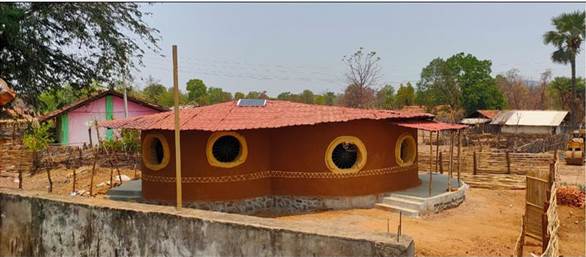
23 such centres have been constructed with funding from District Planning Development Committee initially followed by Special Central Assistance Fund of aspirational district programme and PESA, along with labour contribution from women of SHGs of UMED-MSRLM (State Rural Livelihood Mission). The architectural plan, layout and material specifications were designed taking into account the local housing style and patterns. In the coming two years, the District Administration aspires to scale this initiative by building over 400 centres.
Before and After
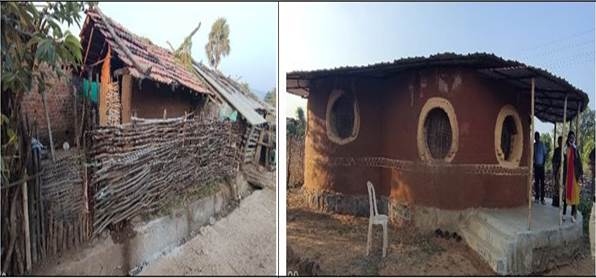
MHM in SBM-G:
Clearly, menstrual hygiene management (MHM) is not just about sanitation. It is a vital step towards protecting the girl child while safeguarding her dignity and giving her a life of opportunities to pursue her dreams, towards achieving a gender-balanced world.
To address this vital aspect, MHM has been included as an important component in the Government’s flagship programme, the Swachh Bharat Mission Grameen (SBM-G). It underlines the need for construction of toilets in households and schools which is integral to menstrual hygiene and encourages safe menstrual hygiene practices. It further calls for skill development and setting up of sanitary napkin dispensers and incinerators in schools and public toilets.
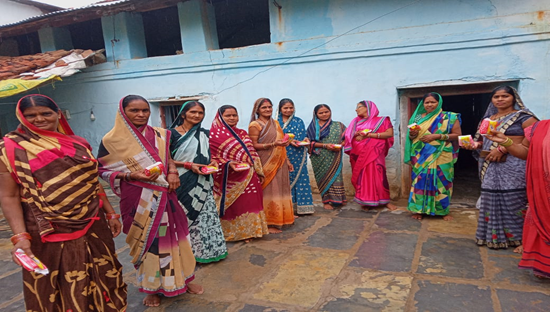
The MHM Guidelines issued by the Department of Drinking Water and Sanitation (DDWS) to support all adolescent girls and women, outlines what needs to be done by state governments, district administrations, engineers and technical experts in line departments; as well as school heads and teachers. Under SBM-G programme, funds are available under the IEC component to raise awareness and skills on Menstrual Hygiene Management, and self-help groups help in propagating such efforts.
In keeping with this, States have initiated various programmes that have dispelled myths and taboos surrounding menstruation, encouraging girls and women to talk about it and clarify doubts.
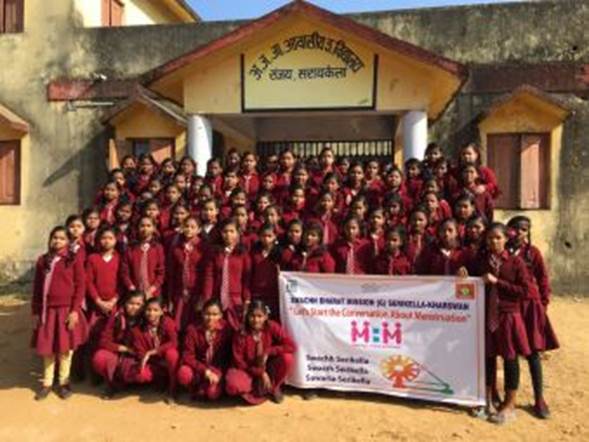
Impact of activities: Going by the activities in various states, clearly the subject of menstruation is now more openly talked about in the rural areas, compared to earlier. Women and girls are aware of the importance of menstrual hygiene and those who have access to them are using sanitary pads or clean cloth. They are questioning ancient practices of being asked to refrain from bathing until the third day, or entering a temple or kitchen or touching pickle. Incinerators are being installed in schools. This needs to be expanded to all households and schools around the country. More work needs to be done to help women and girls reach their full potential which effective MHM can ensure.
Disposal of sanitary waste: Sanitary waste disposal is a problem as the plastic used in disposable sanitary napkins is not bio-degradable and this can lead to health and environmental hazards. As part of the solid waste management strategy, States are required to organise collection, disposal and transportation of such waste – to protect our environment. Safe and appropriate waste management solutions are the need of the hour.
Girls and women should no longer feel embarrassed to talk about periods or clarify their doubts. If we do not encourage them, they would be missing out on various aspects of life or suffer health implications as a consequence.


